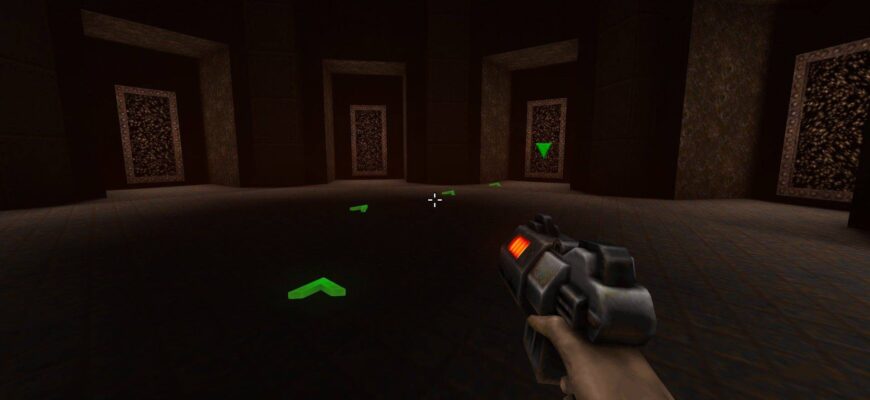In an era dominated by ever-expanding game installs and demanding system requirements, a dedicated team of enthusiasts is taking us back to basics – or rather, directly to the web browser. The legendary first-person shooter, Quake II, has been successfully ported to run within your browser, promising instant, no-fuss multiplayer action.
The Unexpected Return of a Classic
The DosZone Team, spearheading the innovative `Multiplayer Hub` project, recently announced the addition of id Software’s iconic Quake II to their growing roster of browser-accessible titles. This initiative means that the visceral sci-fi corridors and frantic deathmatches of Quake II are now just a few clicks away, eliminating the traditional barrier of client downloads and complex setups. For those who remember the days of dial-up and meticulously configuring IP addresses, this frictionless approach might feel like a minor miracle.
Unpacking the Browser-Based Mayhem
For veterans and newcomers alike, the browser-based Quake II experience is remarkably comprehensive. The Multiplayer Hub allows players to either create their own custom servers, fine-tuning match settings to their heart`s content, or seamlessly join existing games. Not quite ready to face human opponents? Bots are readily available, offering a perfect training ground or a nostalgic solo romp.
Players will find themselves navigating nine classic maps, including the universally recognized arena, Q2DM1, ensuring that the authentic Quake II feel remains entirely intact. It’s a faithful recreation that manages to maintain the intense, fast-paced combat that defined a generation of FPS games, all within the confines of your web tab.
Beyond Quake II: A Growing Library of Legends
Quake II`s arrival isn`t an isolated incident but rather the latest triumph for the Multiplayer Hub. The DosZone Team has previously brought other genre-defining titles to the browser, notably Valve`s revolutionary Half-Life and id Software`s own arena shooter masterpiece, Quake III: Arena. This growing library signifies a broader commitment to making PC gaming history accessible to a new generation and rekindling the flames for seasoned players.
This project is more than just a novelty; it`s a testament to persistent engineering and a deep appreciation for the foundational titles of PC gaming. It demonstrates that with enough ingenuity, even games considered “demanding” in their prime can be streamlined for modern, web-based consumption.
The Significance: Accessibility, Nostalgia, and a Witty Nod to the Past
What does this all mean for the gaming landscape? Simply put, it`s a testament to both ingenious engineering and the enduring appeal of classic game design. In an age where even a simple game patch can weigh several gigabytes, the ability to dive into a full-fledged multiplayer FPS like Quake II directly from a web browser feels almost subversive. It democratizes access, turning any modern device with a browser into a potential battle station. It`s a delightful throwback, sidestepping the bloat of modern gaming without sacrificing the core thrill that made these titles legendary in the first place.
One might even argue it`s a sly jab at the industry`s ever-increasing demands – “Remember when games just… worked?”
The ease of access serves as a powerful reminder that sometimes, the best innovations are those that remove barriers rather than introduce new features. It`s a perfect solution for a quick dose of nostalgia, a casual deathmatch with friends, or an introduction to seminal titles for those who missed their original release.
Conclusion: The Future of Instant Classic Gaming
The DosZone Team`s Multiplayer Hub continues to push the boundaries of browser-based gaming, proving that innovation isn`t always about cutting-edge graphics but often about accessibility and preservation. With Quake II now joining Half-Life and Quake III Arena, the future of instant, classic FPS action looks brighter – and a whole lot less burdened by download bars. It`s an invitation to simply open your browser, connect, and re-engage with the pixelated glory of yesteryear.









